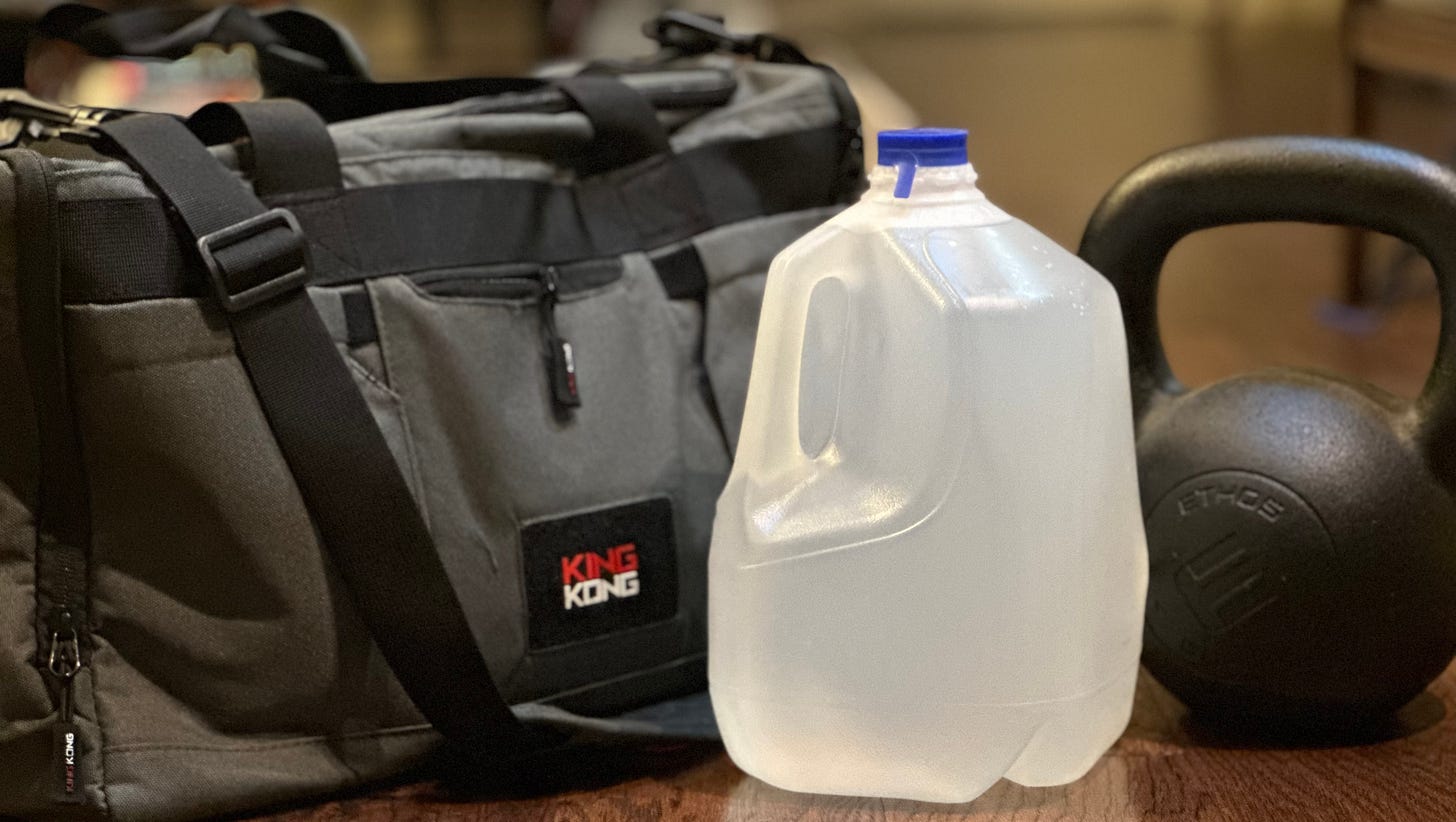Here in Texas, we have had 47 days of 100F (38C) or hotter temperatures so far this summer…with more to come. So, that triggered the thought for this week’s topic: how much water is needed to stay well hydrated?
Humans are primarily composed of water. Water accounts for around 60% of our total weight and around 75% of skeletal muscle. If you are a serious lifter and carry more muscle mass than most people, you likely maintain more total body water content.
We lose water primarily though urine; however, we also lose water through sweat, water vapor from breathing, evaporation from the skin surface.
8 Glasses A Day?
An oft-repeated universal recommendation is that everyone should drink 8 glasses of water a day. There has never been much, if any, science or evidence to support that recommendation. Intuitively, it does not make sense that a 90 year old sedentary 100 lb woman, a 275 lb powerlifter or bodybuilder, and someone working outside doing construction in Texas on a brutally hot summer day would all have the exact same water intake needs.
A Gallon A Day?
If you regularly go to a pretty serious gym to train in the US lately, it is not uncommon to see folks lugging around 1 gallon jugs of water. It’s not uncommon in the physique competitor universe to see the recommendation to drink a gallon of water today. Again, it doesn’t seem logical that a 170 lb mens physique competitor would have the same hydration needs as a 260 lb super heavyweight bodybuilder.
So, How Much Water Do You Need?
Water turnover (the replacement of body water that is lost in a given period of time) can vary quite a bit from person to person. So, if you want an individualized hydration answer, work with a qualified health professional who knows your health and medical history. There are some complicated equations to calculate water turnover that factor in personnel and environmental parameters like physical activity level, amount of fat free mass, sex, humidity level, altitude, age, and air temperature. Note, aside from drinking water, we also intake water from food. So, how much water you need to drink to stay hydrated is less than the water turnover amount. Some advise replacing about 40-60% of the water turnover amount depending on your diet.
Years ago, the National Academies of Sciences, Engineering, and Medicine recommended that women consume an average of approximately 91 oz (2.7L) of water (from foods and drinks) and men should consume an average of 125 oz (3.7L) daily for healthy, sedentary people in temperate climates. So, adjustments would be needed for people who do not fall in the category.
Go For Simplicity
In general, to see if you are doing a good job at getting what you need to replenish your daily water turnover, simply check your body weight and urine color throughout the day. If you weight is remaining pretty stable and the urine color is lighter, you are likely doing a good job maintaining hydration.
Note that it is normal when you wake after sleeping all night up to be a bit lighter on the scale and have slightly darker urine compared to the rest of the day. Most people tend to lose some water during sleep from respiration and sweating. So, consuming water after waking is a good start to replacing the water lost overnight. If you consume water during the day and your urine color gets slightly lighter and your weight remains stable or slightly increases, you are likely keeping up with being well hydrated.
For those who perform hard training sessions where they sweat a lot, a common approach is to weigh before the training session and after the session and then ensure that enough fluid intake occurs in the hours after the workout to replace the fluid lost through the session. Of course, consuming water during the training session itself will help reduce the different between pre- and post-weigh ins.




